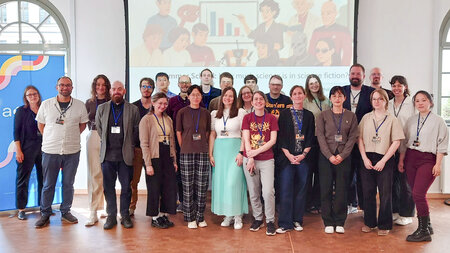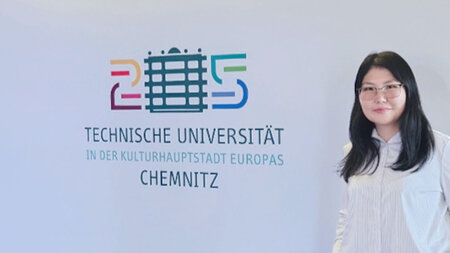12th Materials Technology Colloquium Chemnitz and
8th Industry Conference on Surface and Heat Treatment Technology (01./02.10.2009)
Technical progress and economic efficiency depend decisively on the use of suitable materials. Germany has developed into an important location in this field. Surface and heat treatment technologies represent a key to the scientific-technical, economic and ecological solution of conventional problems and to the development of innovative products, contribute to strengthening competitiveness and thus to securing Germany as a location for business and research. Multifunctional surfaces are needed to meet the increasingly complex demands placed on components. The creation of such surfaces through coating, conversion and heat treatment is increasingly being integrated into production with high precision and reliability. Technical-scientific advance, based on solid education and training, is a decisive prerequisite for the economic and ecological solution of conventional problems and for the development of innovative products and thus for sustainable business success. WTK and OWT are intended to contribute more to the networking of research and practice, are therefore practice-oriented and offer a forum for discussions between science and practice. This is particularly underlined by the accompanying industrial exhibition.
The importance of the conference and its increasing significance were already clear during the welcoming address. In addition to the head of the organising institute and current dean of the Faculty of Mechanical Engineering at Chemnitz University of Technology, Univ.-Prof. Dr.-Ing. habil. B. Wielage, the Rector of the TU Chemnitz, Univ.-Prof. Dr.-Ing. habil. K.-J. Matthes, as well as the Chairman of the Board of the Chemnitz Mechanical Engineering Association, Dipl.-Ing. Uwe Hartmann, welcomed the participants. A concluding summary of the conference and an outlook was given at the end by Univ.-Prof. Dr.-Ing. habil. T. Lampke.
The plenary lectures reflected the technical diversity of the conference (coating, joining, build-up welding, heat treatment and composites/lightweight construction). Dr Rupprecht and Dipl.-Ing. Grund from the IWW presented the development trends in thermal spraying, which is also an important research focus at the IWW. In addition to cold gas spraying, they also discussed new burner technologies. Prof. A. Möbius (Enthone) presented the potentials, but also the problems of the new deposition of metals and alloys from ionic liquids. Although it has barely outgrown the laboratory scale, it could replace conventional processes in just a few years. Prof. Dr. Lech Pawlowski (University of Lille, France) compared different physical deposition processes and evaluated their industrial application. Prof. D. Trimis (TU Bergakademie Freiberg) presented the pore burner technology with its advantages over conventional burner technologies. This was logically followed by the two plenary lectures on cohesive joining by Dr Hoyer (IWW), who gave an overview, and by Dr Bergmann (Jenoptik), who presented selected approaches to thermal joining at low temperatures. In further plenary lectures, Dr Möhwald (Fortis Institut Witten) presented new solution approaches for hybrid technologies for coating and joining processes and Dr Bürkner (IFS of TU Chemnitz) presented the processes of build-up welding and cladding. The plenary lectures of the second day began with a comprehensive contribution by Prof. Zoz (GF of the Zoz Group) on the possibilities of the resulting improvements in the production of materials via high-energy grinding. Prof. Keßler (University of Rostock) gave a summary overview of precipitation hardening of aluminium alloys depending on the quenching process during a possible industrial machining operation. The last plenary lecture of the conference dealt with the important topic of handling nanoparticles. Mr Weidl (TÜV SÜD, Munich) highlighted problems and precautionary measures.<
Particularly noteworthy were the presentations on the ongoing Collaborative Research Centre 692 (High-strength aluminium-based lightweight materials for safety components). Another focal point was the presentation of the „Thermal Spray Cluster“. With this cluster, it has been possible for the first time in Germany to bundle research topics of the AiF and the DFG under a common target. Furthermore, the work of the affiliated institute KVB of the Chemnitz University of Technology (Institute for Design and Composite Structures), which is celebrating its 15th anniversary this year, was discussed in detail.
The contributions are compiled in the conference proceedings and were presented for the first time, thus achieving a high scientific level. Current results from research and industrial practice were presented from the following subject areas:
- Thermal spraying
- Galvanic metal deposition
- Anodise
- Composites and lightweight construction
- Fügen
- Deposition welding
- Heat treatment.
The traditional evening event was all about mechanical engineering and began with a remarkable lecture about the „Chemnitz Railway King“ Richard Hartmann. Chemnitz is one of the most traditional industrial locations in Saxony and used to be called „Saxon Manchester“ because of its specialisation in mechanical engineering. The origins of today's Chemnitz University of Technology also date back to this time. This has developed into an important German educational location and a focal point for the application of modern materials technology.
The conference counted more than 60 scientific lectures and poster contributions. A large number of companies presented new developments in materials production, refinement and materials characterisation. Thus, it became clear that there is close cooperation between research and development and the application of scientific findings and is accompanied by a high level of acceptance and promotes the cross-industry exchange of information between users, researchers and developers.




